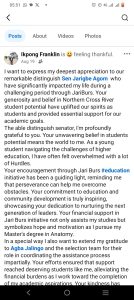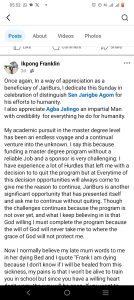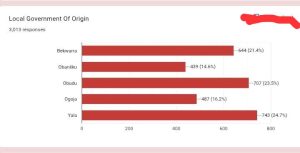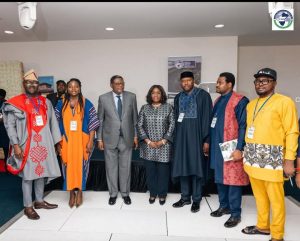During former Governor Ben Ayade’s first term, despite being one of his vociferous critics, I appreciated his idea of boosting people’s purchasing power to stimulate economic growth through his “food on the table” policy. However, I opposed distributing money without requiring value in return, as it’s unsustainable and risks economic drawbacks.
Without a doubt, purchasing power is a key driver of consumer behaviour and economic growth. When households have more income, they buy more goods and services, increasing demand. Yet, handouts without productivity can destabilize the economy.
While putting money in the hands of people or food on the table was good, making them accountable by encouraging value for the money was even better. This was what inspired me to share my idea for the restructuring of the policy to something more sustainable and beneficial to both the people and the government. In a private message to the then Governor, I proposed the creation of a “Cross River Business Support Fund” instead of treating public appointments as job creation or encouraging dependency.
The idea was to calculate the total value of appointees’ payments over their tenure and provide it as business startup capital under strict oversight. I suggested that the state could secure a bank facility that can be repaid monthly with funds that would have gone to appointees salaries to ensure no debt burden for the next administration.
Each appointee was to receive at least N5m capital to establish small business, with each venture creating one or two additional jobs. For instance, for 5,000 appointees, this could have directly and indirectly generate at least 10,000 jobs.
When my private suggestion was ignored, I published articles advocating for this. I had hoped that a government official who had the Governor’s ears could pick it up and convince him that it was more sustainable than the free money policy, but the suggestion, as many others from other patriotic Cross Riverians was ignored.
Nevertheless, it gladdens my heart that years later, the Honourable Minister of State, Industry, Ministry of Industry, Trade, and Investment, Sen. John Owan Enoh is set to launch a N500m business grant for Cross Riverians; a commendable step towards building an alternative economy for our people. This programme, understood to be a private initiative stands as the largest single individual support for businesses in Cross River State.
Beyond this, the Minister has also facilitated soft loans from the Bank of Industry for so many startups and existing businesses in the state. Small and Medium Enterprises (SMEs) are the backbones of any economy as they are vital for job creation. Unarguably, these initiatives; the loans and business grants will boost employment and purchasing power in the state. This didn’t come as a surprise as the Minister’s public service life has been defined by commitments to create sustainable jobs for the people than anything else.
As Cross Riverians look up to the success of the programme which will be unveiled formally on Friday in Calabar, the Minister deserves all the praises for promoting entrepreneurship as a solution for rapid economic growth in a state heavily reliant on civil service and politics. Kudos to him.
Inyali Peter, Ph.D.
Disclaimer: The opinion expressed in this article is strictly that of the author, Peter Inyali, and does not represent TheLumineNews, its agent or the organization the author works for.




